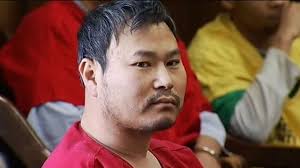
On April 2, 2012, One L. Goh, a 43-year-old former nursing student, entered Oikos University, a small Christian school in Oakland, California. Armed with a .45-caliber handgun and carrying additional ammunition, he began firing inside a classroom where students and instructors were gathered.
Goh shot eight people, killing seven individuals, all of whom were students, and severely wounding another before exiting the classroom. As officers arrived shortly after, Goh surrendered without resistance and was taken into custody.
Investigators found a note in Goh’s apartment indicating he blamed the school, its instructors, and administrators for ruining his life—complaints centered on academic failure and perceived discrimination. He had recently been dismissed from the nursing program for poor performance, and this rejection seemed to fuel his resentment toward the institution.
Goh was charged with one count of murder and seven counts of manslaughter with sentencing enhancements. In 2013, he was convicted on all counts and received life in prison without parole. He remains incarcerated.
The Oikos University shooting highlighted the dangers of violent resentment stemming from academic failure and perceived injustice. It showed how unresolved grievance can turn into deadly action even in a small, specialized educational setting.
Articles:
Details of Oikos University massacre tell of terror in Oakland
One L. Goh, Oikos University gunman, kills 7 people “execution-style,” say police
Man convicted in 2012 mass shooting at Oikos University dies in custody
Additional Links:



Leave a Comment